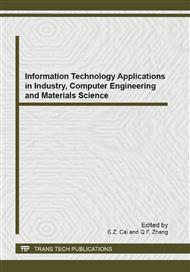p.2265
p.2270
p.2275
p.2281
p.2288
p.2294
p.2300
p.2306
p.2311
An Efficient Sleeping Scheduling for Save Energy Consumption in Wireless Sensor Networks
Abstract:
Smart grid has become one hot topic at home and abroad in recent years. Wireless Sensor Networks (WSNs) has applied to lots of fields of smart grid, such as monitoring and controlling. We should ensure that there are enough active sensors to satisfy the service request. But, the sensor nodes have limited battery energy, so, how to reduce energy consumption in WSNs is a key challenging. Based on this problem, we propose a sleeping scheduling model. In this model, firstly, the sensor nodes round robin is used to let as little as possible active nodes while all the targets in the power grid are monitored; Secondly, for removing the redundant active nodes, the sensor nodes round robin is further optimized. Simulation result indicates that this sleep mechanism can save the energy consumption of every sensor node.
Info:
Periodical:
Pages:
2288-2293
Citation:
Online since:
September 2013
Authors:
Price:
Сopyright:
© 2013 Trans Tech Publications Ltd. All Rights Reserved
Share:
Citation:


